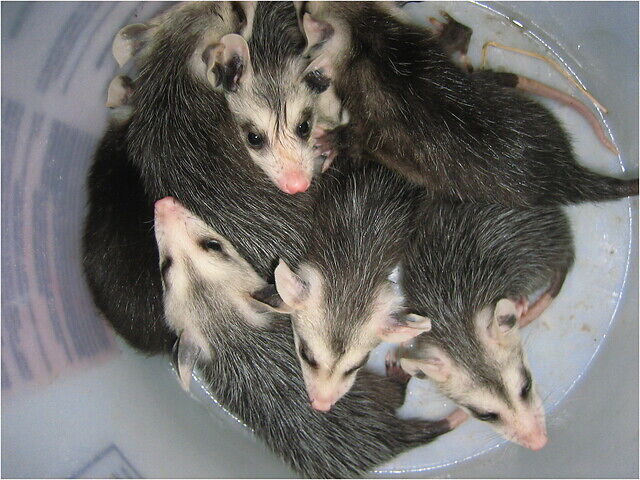Should I Feed a Baby Opossum?
Caring for a baby opossum – or any wildlife animal, for that matter – can prove to be an extremely difficult and tedious task.
If there is a wildlife rehabilitation center in your area, it may also be illegal to care for or possess a wild animal. In this case, if you discover an opossum in need, immediately contact wildlife control or a rehabilitation center to take care of the poor creature. With that being said, in a situation where caring for the animal is a necessity in the moment and time is of essence, as long as you are prepared, informed, and confident, you may have no other choice but to care for and feed the opossum.
This is, of course, dependent on the state of the creature, as well as the age and size of the animal. Knowing this will help determine the best course of action.
Feeding

If the baby opossum is newly orphaned (due to abandonment or the death of its mother), here are some steps you can follow:
- The first step in caring for the baby is to gently and carefully warm it up.
- Once stabilized, the baby opossum likely needs to be stimulated in order to remove any waste such as urine or feces. A failure to act on this could result in bladder failure and death.
- Once the baby is willing and prepared to feed, you’ll want to begin with milk suckling. Don’t force it; simply allow the baby to voluntarily begin at its discretion. Consult a professional on the proper milk formula to use.
- As the baby grows, gradually increase the amount of food you are feeding it. It will quickly gain a larger appetite; however, be sure to monitor amounts. Overfeeding is a huge danger when caring for any wild animal, so follow all necessary protocols.
- The baby opossum will eventually reach a point in which it will have grown teeth. At this point, you can begin to consider feeding it soft, thinly chopped vegetables and other solid foods with safety and discretion.
The Final Step
If you are caring for the opossum for long enough, you will reach a point in which you need to consider releasing it into the wild. In order to prepare for this, begin feeding it tiny insects, bugs, etc.
This will help acclimate the baby opossum to its true nature and natural habitat. These are to be supplied in larger quantities, as that is what it will be like in the wild.
In some jurisdictions, it may be illegal to care and feed for a wild animal without a certification, license, or permit. So before engaging in any such activity, always consult with your local authorities and study your rights.
If you are able to care for animals, always ensure that you are truly prepared to do so. This is crucial for your safety and the animal’s survival, and if done wrong, can result in great harm or even death.
The best solution in a situation like this is to locate the nearest wildlife rehabilitation clinic.